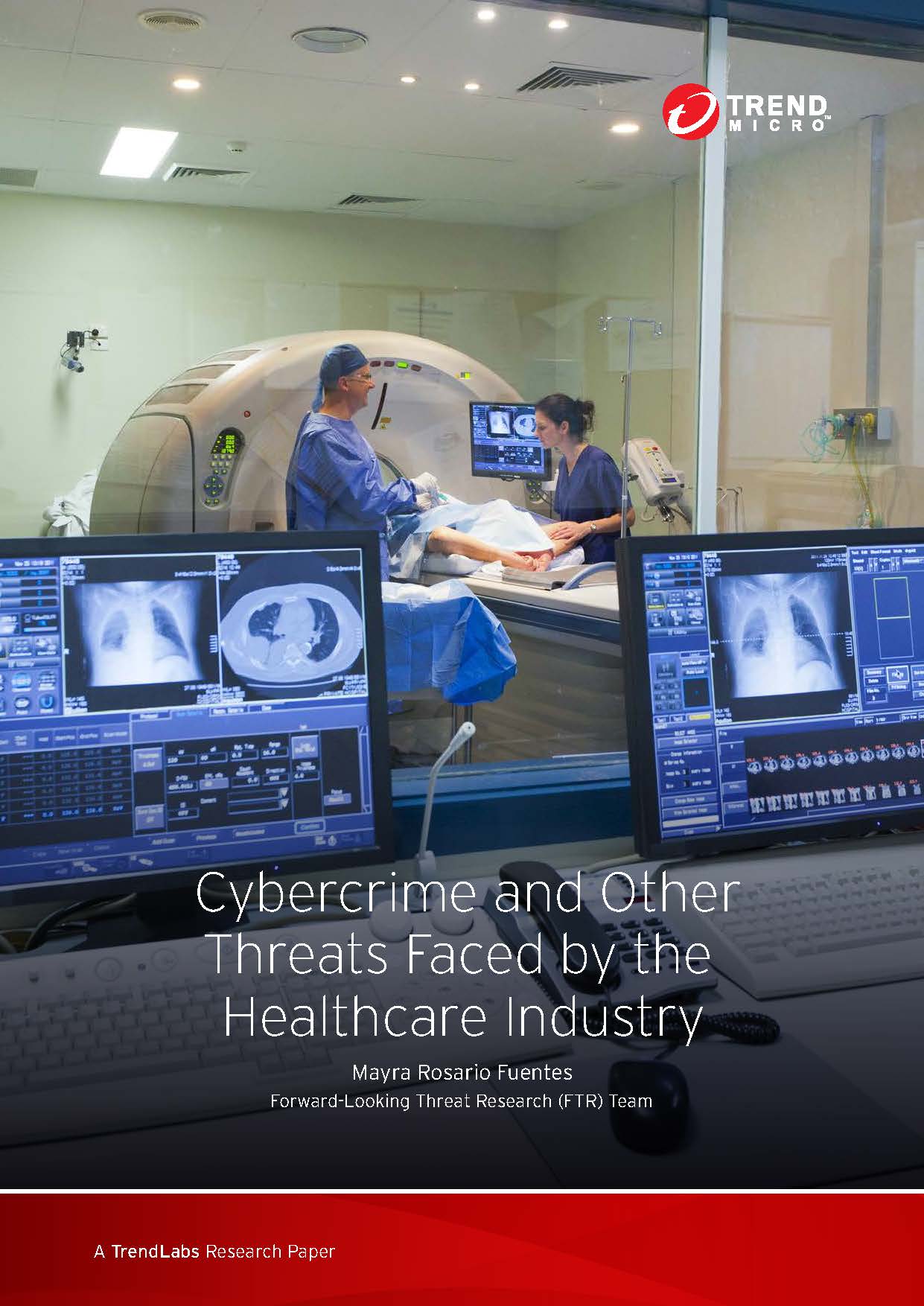The Price of Health Records: Electronic Healthcare Data In the Underground
 View research: Cybercrime and Other Threats Faced by the Healthcare Industry
View research: Cybercrime and Other Threats Faced by the Healthcare Industry
Since 2012, data breaches involving healthcare-related data have been increasing substantially. This activity reflects the growing interest cybercriminals have toward the healthcare industry and, more importantly, the data to be found in those organizations. In fact, cybercriminals are finding particular use for stolen medical data in the creation of new products to sell in underground markets.
Electronic health records (EHR) contain personal data used during medical transaction. They can be accessed through special EHR management software. An EHR may contain the following data: date of birth, medical insurance ID, Social Security number and financial information. The value in this type of data lies in the nature of the information: unlike credit card information, PII available in an EHR cannot be easily replaced or changed in the event of an attack. Data such as a patient’s Social Security number, date of birth, and medical history are unique and thus have an increased shelf life in the underground market.
Besides selling the individual pieces that comprise an EHR, this data can also be collected to create a new product, e.g. insurance cards, driver’s licenses, even come up with entirely new identities. Cybercriminals can use prescription information to procure drugs, Medicare insurance IDs offer medical insurance, and Social Security numbers to create fraudulent tax returns.
|
EHR-Related Documents For Sale in the Underground
|
|
| ITEM | PRICE (US$) |
| Complete EHR Database | 500,000.00 |
| Medical Insurance ID | 1.00 |
| Personal profile (with medical and insurance data) | 0.99 |
| Comprehensive personal profile (with PII, Social Security number, appointment schedule, date of birth, insurance ID number, etc.) | 5.00 |
| Driver’s license | 170.00 |
| Farmed Identity | 1,000.000 |
Another area that we analyzed in this research was internet-connected devices in healthcare organizations. By conducting a search through Shodan, a search engine capable of indexing internet-connected devices, we found medical equipment and networks that are openly exposed and possibly vulnerable to exploitation. Our search also showed unsecured devices, exposed hospitals, vulnerable computers, and many more.
There are many reasons that contribute to the increase of data breaches in the healthcare industry. Compared to other sectors, health care data is more lucrative and can be sold in various ways. Though it is understandable that hospitals and clinics allot more resources toward patient care and improving their services, security should not be lacking. Not only should IT administrators be knowledgeable of troubleshooting techniques, they should also be aware in data protection and actionable steps in the event of a breach. EHR software vendors also need to focus on strengthening their data security, as well as perform regular monitoring of vulnerabilities that may affect devices that run their program.
In our new research paper Cybercrime and Other Threats Faced by the Healthcare Industry, we discuss several aspects of the healthcare threat surface. In the first part, we look at how the healthcare sector has evolved as a preferred target for cybercriminals. We try to understand how stolen medical records are monetized after a breach, what types of data are stolen, how much they are sold for on the underground markets, and how cybercriminals make use of them. The second part of this paper is dedicated to the analysis of Shodan scan data which reveals what healthcare-related devices and networks are connected to the internet and are visible to everyone, including cybercriminals.
Like it? Add this infographic to your site:
1. Click on the box below. 2. Press Ctrl+A to select all. 3. Press Ctrl+C to copy. 4. Paste the code into your page (Ctrl+V).
Image will appear the same size as you see above.
- They Don’t Build the Gun, They Sell the Bullets: An Update on the State of Criminal AI
- How Unmanaged AI Adoption Puts Your Enterprise at Risk
- Estimating Future Risk Outbreaks at Scale in Real-World Deployments
- The Next Phase of Cybercrime: Agentic AI and the Shift to Autonomous Criminal Operations
- Reimagining Fraud Operations: The Rise of AI-Powered Scam Assembly Lines

 Complexity and Visibility Gaps in Power Automate
Complexity and Visibility Gaps in Power Automate AI Security Starts Here: The Essentials for Every Organization
AI Security Starts Here: The Essentials for Every Organization Ransomware Spotlight: DragonForce
Ransomware Spotlight: DragonForce Stay Ahead of AI Threats: Secure LLM Applications With Trend Vision One
Stay Ahead of AI Threats: Secure LLM Applications With Trend Vision One